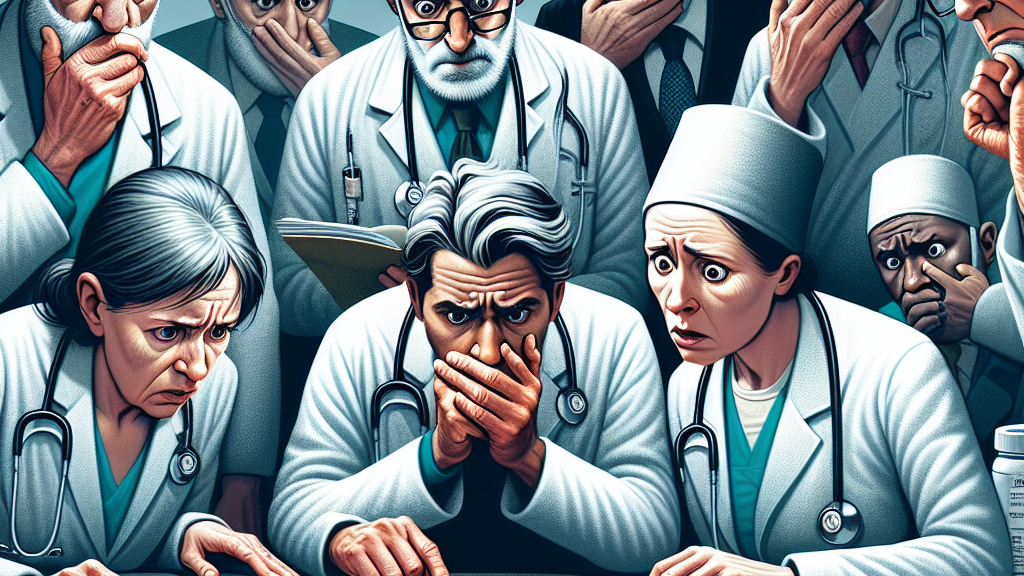Surgeons Outplay Other Hospital Staff in Buzz Wire Dexterity Test
Mastering the art of precision is the hallmark of exceptional surgeons, but how does their dexterity compare to other hospital staff members in less conventional tasks? A recent, lighthearted yet telling study published in the British Medical Journal (BMJ) sought to answer this question. Researchers put 254 healthcare professionals, ranging from surgeons and physicians to nurses and administrative staff, to the ultimate test: playing a classic buzz wire game under pressure. The results not only revealed surprising insights into manual skill distribution but also shed light on stress-handling abilities across different roles.
With playful findings that encourage critical reflection on healthcare professional training, let’s explore the study’s key highlights under three critical themes: manual dexterity supremacy, stress-induced behaviors, and what this all means for the hospital workforce.
Surgeons Dominate: Dexterity in Action
When the stakes were high—completing a twisty, wobbly buzz wire course without triggering the dreaded buzzer—one group emerged ahead: surgeons. Outperforming their healthcare peers, a stellar 84% of surgeons successfully completed the game in under five minutes. In contrast, the success rates dropped among nurses (54%), physicians (57%), and non-clinical staff (51%).
Not only did surgeons excel in task completion, but they also dramatically eclipsed others in speed, averaging 89 seconds per round compared to 120 seconds for physicians and a whopping 161 seconds for non-clinical staff. These numbers suggest an ingrained or developed advantage, likely born out of years spent perfecting hand-eye coordination and mastering surgical precision.
However, amidst these impressive stats, one question persists: Is this prowess a result of inherent skill, or does the intense surgical training process gradually hone these abilities? Evidence leans towards the latter, suggesting dexterity can potentially improve across other roles with targeted exercises.
Stress Behaviors Under Pressure: Surgeons vs. Everyone Else
While surgeons might have precision down, they certainly weren’t the poster children for emotional composure during the game. Over half of the surgeons (50%) were recorded swearing under the pressure, surpassing nurses (30%), physicians (25%), and administrative staff (23%). Meanwhile, non-clinical participants—known more often for rapid typing than handling emergencies—expressed the most frustration audibly (sighs, groans, mutters), with 75% vocalizing stress compared to 58% of surgeons.
What’s perhaps most striking in this data is the juxtaposition of stress response: surgeons outperformed yet appeared visibly perturbed, while nurses and non-clinical staff—managing lower success rates—leaned towards vocal venting over outright expletives. This prompts a larger question in healthcare psychology: does succeeding under pressure naturally come with emotional strain costs, and how can professionals across fields handle this pressure better?
From Buzz Wire Games to Real-World Applications
So, why does winning a children’s game matter in the grand healthcare picture? The findings offer more than a chuckle at stressed surgeons or sighing clerical workers; they hint at untapped potential across all roles.
The study suggests that regular training to enhance both dexterity and stress management could level the playing field among nurses, physicians, and non-clinical staff—a critical insight in large hospitals where emergencies demand sharp reflexes from every single team member.
For surgeons? The results may inspire exciting new ways to handle stress during surgeries. Imagine a dexterity training program styled after the buzz wire game or even a stress-management strategy that rewards “calm hands” under pressure.
Finally, the comedic suggestion of a “surgical swear jar” fundraising initiative could elevate morale and lighten the day-to-day toil.
The Takeaway: More than Just Playful Fun
Ultimately, this playful study balances levity with valuable takeaways for healthcare management. Surgeons may reign supreme in the dexterity department, but opportunities abound to build composure and manual skills across all professions.
By investing in gamified training sessions that cultivate both stress-resilience and fine motor skills, hospital systems can strengthen teamwork and individual performance alike. After all, whether handling scalpels or stethoscopes, staying sharp while keeping cool could be the next game-changing move in professional development. 🤝
For now, though, we salute the dexterous surgeons who not only keep patients alive but perhaps bring an unexpected flair (and plenty of creative vocabulary) to family game night!

